CATEGORIES
Kategorier

Linux Foundation launches LF India to foster open source innovation and support in India
The Linux Foundation, a nonprofit organisation dedicated to driving innovation through open source, has announced the launch of LF India.
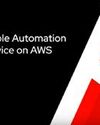
Red Hat launches Ansible Automation Platform Service on AWS
Red Hat, Inc., has announced the general availability of the Red Hat Ansible Automation Platform Service on Amazon Web Services (AWS) as a managed offering available through AWS Marketplace.

Fedora Asahi Remix 41 is now generally available
The Fedora and Asahi Linux projects have announced the general availability of Fedora Asahi Remix 41, the latest version of this distribution tailored for Apple Silicon Macs.

SageMath: A Second Glance at Cybersecurity
The eighth article in the series on SageMath explores a classical encryption scheme called the Rail Fence cipher and introduces the concept of symmetric-key encryption.

Building Cross-Platform Mobile Apps with lonic
Mobile apps are an intrinsic part of daily life today we use them to order food, groceries, taxis, and more. As these apps need to work across platforms, developers are focusing on cross-platform app development so that they code only once to create apps that function on multiple platforms. lonic is a framework that can help developers build apps faster than with native app development, while saving them time and money. Let’s learn how to install and deploy it.

Open Source AI Frameworks: Integrating AI with lot
Open source Al helps loT devices learn, adapt, and automate actions based on real-time data, improving convenience and security. Here’s an overview of six key open source Al frameworks that help integrate Al with loT, and the challenges they face.

Open Source loT: A Primer for Everyone
Open source IoT platforms promise to play a central role in shaping the future, making it possible for more people and businesses to benefit from smarter, more efficient solutions. We look at a brief history of this tech and explore emerging trends.

Using Open Source and Blockchain to Build Decentralised loT Networks
Explore how blockchain is being integrated with loT to create decentralised networks. Find out how leading open source projects like IOTA and Streamr use blockchain to ensure data integrity, security, and privacy in loT ecosystems.

Internet of Things: Running Language Models on Edge Devices
Let’s delve into the technical aspects, challenges, and benefits of deploying language models on edge/loT devices.
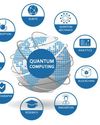
How Open Source is Making Quantum Computing Accessible to Everyone
Open source initiatives are breaking down the barriers to quantum computing, making it accessible to everyone. Explore what quantum computing is, the challenges of traditional adoption, how open source platforms are democratising the technology, and how you can get started in this exciting domain.

Building the Backbone of AI with Scalable and Power-Efficient Infrastructure
The AI revolution is being fuelled by continuous investment in infrastructure to handle vast and complex workloads. This includes moving towards distributed computing and using XPUS.

Amazon Bedrock: A Boon for the Financial Services Industry
Amazon Bedrock is a fully managed service that provides access to foundation models from top AI providers, enabling organisations to build and scale generative AI applications. It is specifically designed to bring AI solutions to the financial sector. Let's explore all that it can do...

Quantum-Safe VPNs: The Future of Secure Communication
As quantum computing continues to advance, it poses a significant threat to traditional cryptographic algorithms that secure our digital communications. Virtual private networks (VPNs), which rely heavily on encryption, are particularly vulnerable. Quantum-safe VPNs utilise post-quantum cryptographic algorithms to protect against quantum attacks.

Popular Open Source Toolkits for Quantum Machine Learning
Quantum machine learning is becoming increasingly popular due to its ability to solve the complex problems of the AI age. Here are a few open source libraries and frameworks that help with quantum computations.

Quantum Computing: Harnessing Open Source for Innovation and Accessibility
We explore how open source initiatives are shaping the future of quantum computing, making it more accessible and driving innovation through collaboration.

How Quantum Computing Differs from Classical Computing
Despite being in its infancy, quantum computing has numerous potential applications in modelling, cybersecurity, AI/ML, and other fields. But how do quantum and classical computing compare with each other? Let's find out...
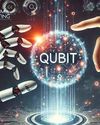
From Bits to Qubits: The Growth Story of Quantum Computing
Quantum computing may still be in the early stages of evolution, but its potential impact on everyday life is significant. We delve into the key concepts behind it, the reasons for its rapid growth, and how global advancements are shaping its future.

Pytket: A Comprehensive Guide to Quantum Circuit Design
Pytket stands out as a powerful toolkit in the realm of quantum computing, offering a suite of features that cater to both researchers and industry practitioners. Its key strengths include optimisation, platform-agnostic support, flexible quantum circuit design and hybrid algorithm support. These features make Pytket a versatile tool for various quantum computing applications, from machine learning and cryptography to optimisation problems in industrial settings.

Cirq: The Open Source Framework for Programming Quantum Computers
Explore the key features, capabilities, and impact of Cirq, an open source quantum computing framework developed by Google, on the quantum programming landscape.

The Role of Open Source in Accelerating Quantum AI
Here's an overview of how open source frameworks are being utilised to build quantum machine learning models, including quantum neural networks and quantum kernel methods. The challenges and future directions in the quantum AI landscape are also discussed.

Quantum Machine Learning: An Overview
Quantum machine learning (QML) is a burgeoning field at the intersection of quantum computing and artificial intelligence. In recent years, the integration of quantum mechanics with machine learning algorithms has sparked substantial interest among researchers and technologists alike. Here's a quick look at the essentials of creating quantum algorithms for AI models, their practical use cases on open source platforms, and best practices for implementing these advanced algorithms.

Blockchain: Transforming Automotive Traceability, Payments, Sustainability
From advanced battery passports to carbon credits and fortified payments, blockchain is reshaping EV data handling and connectivity.

"Developers are wasting their time with Kubernetes alone!"
At Open Source India 2024, Ram Iyengar, Chief Evangelist, Cloud Foundry Foundation, raised a few eyebrows with his cogent arguments about ways to manage and deploy infrastructure. OSFY's Yashasvini Razdan got some exclusive takes on alternatives for scalable application deployment and management, and the role of Cloud Foundry Foundation in this business....

Helgrind: Detecting Synchronisation Issues in Multithreaded Programs
Let's explore how Helgrind can be used to detect and debug multithreading issues with the help of a multithreaded C program.

The Perfect Process of Booting a PC
Booting a PC seems as simple as eating a cake. But are you aware of all that goes on behind-the-scenes to bake a delicious cake or seamlessly boot a PC?
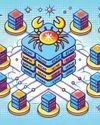
Exploring eBPF and its Integration with Kubernetes
eBPF, a game-changing technology that extends the capabilities of the Linux kernel, offers significant advantages for Kubernetes networking. It also greatly improves Kubernetes observability by capturing detailed telemetry data directly from the kernel. Read on to find out how its integration with Kubernetes has immense benefits.

Deploying Generative AI LLMs on Docker
Built on massive datasets, large language models or LLMS are closely associated with generative Al. Integrating these models with Docker has quite a few advantages.

Containerisation: The Cornerstone of Multi-Cloud and Hybrid Cloud Success
Open source containerisation software provides the flexibility, cost-effectiveness, and community support needed to build and manage complex multi-cloud and hybrid cloud environments. By leveraging this software, businesses can unlock the full potential of multicloud and hybrid cloud architectures while minimising vendor lock-in risks.
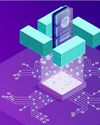
From Virtual Machines to Docker Containers: The Evolution of Software Development
Containerisation and Kubernetes have eased software development, making it faster and better. Let's see where these are headed, looking at trends that are making life easier for developers.

India's Leap in Supercomputing: Innovating for Tomorrow
As India strides towards self-sufficiency in supercomputing, embracing this evolution isn't just an option-it is pivotal for global competitiveness and technological leadership.